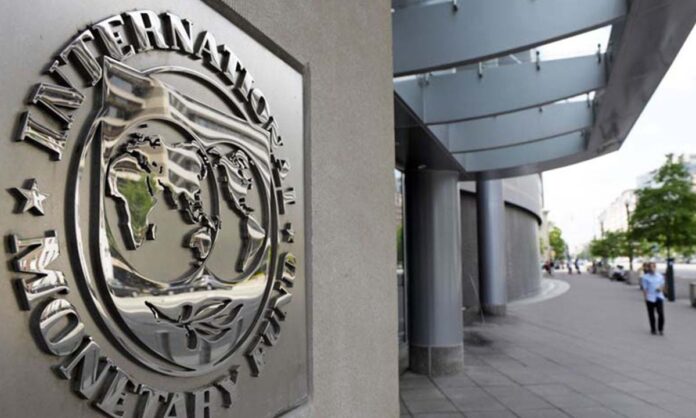Abuja, June 24, 2023: World leaders have praised the African Development Bank (AfDB) for finding a solution that would enable rich countries reallocate part of their Special Drawing Rights (SDR) to low-income countries.
The leaders, attending this week’s Summit for a New Global Financing Pact, in a statement by the bank, said the reallocation would be done through multilateral development banks (MDBs).
According to the statement, the technical solution preserves the asset reserve status of the SDRs and will unlock hundreds of billions for Africa.
The AfDB and the Inter-American Development Bank had been leading calls for the reallocation of the SDRs.
It said “This will be done through multilateral development banks like themselves, to help rebuild livelihoods due to the impact of climate change and other global challenges.
“The United Nations Secretary-General, António Guterres said the AfDB inaugurated an initiative to channel SDRs to multilateral development banks.”
According to Guterres, this initiative will increase their impact five-fold and should be a source of inspiration.
The UN chief said world leaders could implement a mechanism allowing SDRs to be issued automatically when a crisis occurred and distributed according to need.
Guterres said: “They can put a price on carbon. They can end fossil fuel subsidies and reallocate this funding towards more sustainable and productive use.”
The statement said French President Emmanuel Macron convened the summit to find a roadmap for easing the debt burdens of low-income countries while freeing up more funds for climate financing.
Macron suggested four pillars that should underpin the new global financial pact, stressing that it must have the support of the people most affected by climate change.
The French President said: “First, no country should have to choose between fighting poverty and protecting the planet.
“Second, each country must follow its own path because there is no single model.
”Third, we need to take on a public funding shock. And we need more from the private sector to mobilise a lot of money.”
United States Treasury Secretary, Janet Yellen underscored the importance of regional development banks in addressing development finance challenges and reducing vulnerabilities in developing countries.
“We are seeing important innovations begin to take shape across the AfDB, the Asian Development Bank, the Islamic Development Bank and others.
”There should be continuous partnership between the World Bank and these regional development banks.
“We must continue to pursue ambition on reforms at the World Bank.
“The World Bank should develop a framework on principle concessional resources so that financing to address global challenges is deployed to where it has the highest impact,” Yellen emphasised.
She also recommended to offer borrowers the option to add climate resilient debt clauses to their loan agreements ” so they have a greater buffer if climate related events strike.”
World Bank President, Ajay Banga, acknowledged the crucial role of regional development banks and pledged a closer partnership with the AfDB.
Banga said: “My first visit as a nominee was to Côte d’Ivoire to meet with AfDB President, Akinwumi Adesina. So, I think in many ways we have to work in partnership.”
Speaking during a panel discussion, the AfDB president said multilateral development banks could leverage an allocation of 200 billion dollars as an example and turn that amount into a trillion dollars.
Adesina said :“The MDBs are leveraging machines. They can leverage the SDRs by three to four times. So that leverage is very important to have.
”With 21 African countries in or at high risk of debt distress, the G-20 Common Framework for Debt Treatment is vital.
“There Is no time to waste. “So, we do have to make it work faster, work at scale, very important,” he stressed.
The IMF Managing Director, Kristalina Georgieva, announced that the Fund had reached its target of making 100 billion dollars in special drawing rights available for vulnerable countries.
President Mohamed Bazoum of Niger, one of the African countries that had been hard hit by crises, including drought and flooding, called for the Paris meeting to be more than just another meeting.
“This meeting must make it possible to build an ingenious toolbox in which funding will have to be better shared.
“It must include the monetisation of carbon quotas and special drawing rights.
”I expect the new pact to make concrete and operational the aid promised by the Paris Agreement (100 billion dollars per year) and the commitments by countries signatory to the Glasgow Climate Pact.
”To revise and strengthen their 2030 targets to bring them in line with the temperature target of the Paris Agreement,”Bazoum said.
According to him, there is a short-term emergency in the global emergency. So, we need to increase the financing capacity of the multilateral development banks.
Bazoum said:”We have only one planet, and we are at a historic turning point.”
Prime Minister Mia Mottley of Barbados said: “Today, we are in Paris with hope. We are asking for a total transformation of our institutions, not a simple reform.
”What is more, we must not let companies or philanthropists do what they want but what the world needs.
”If we don’t invest on a large scale today, we won’t achieve the goal of saving the planet. Everyone has to share the burden,” Mottley said.




